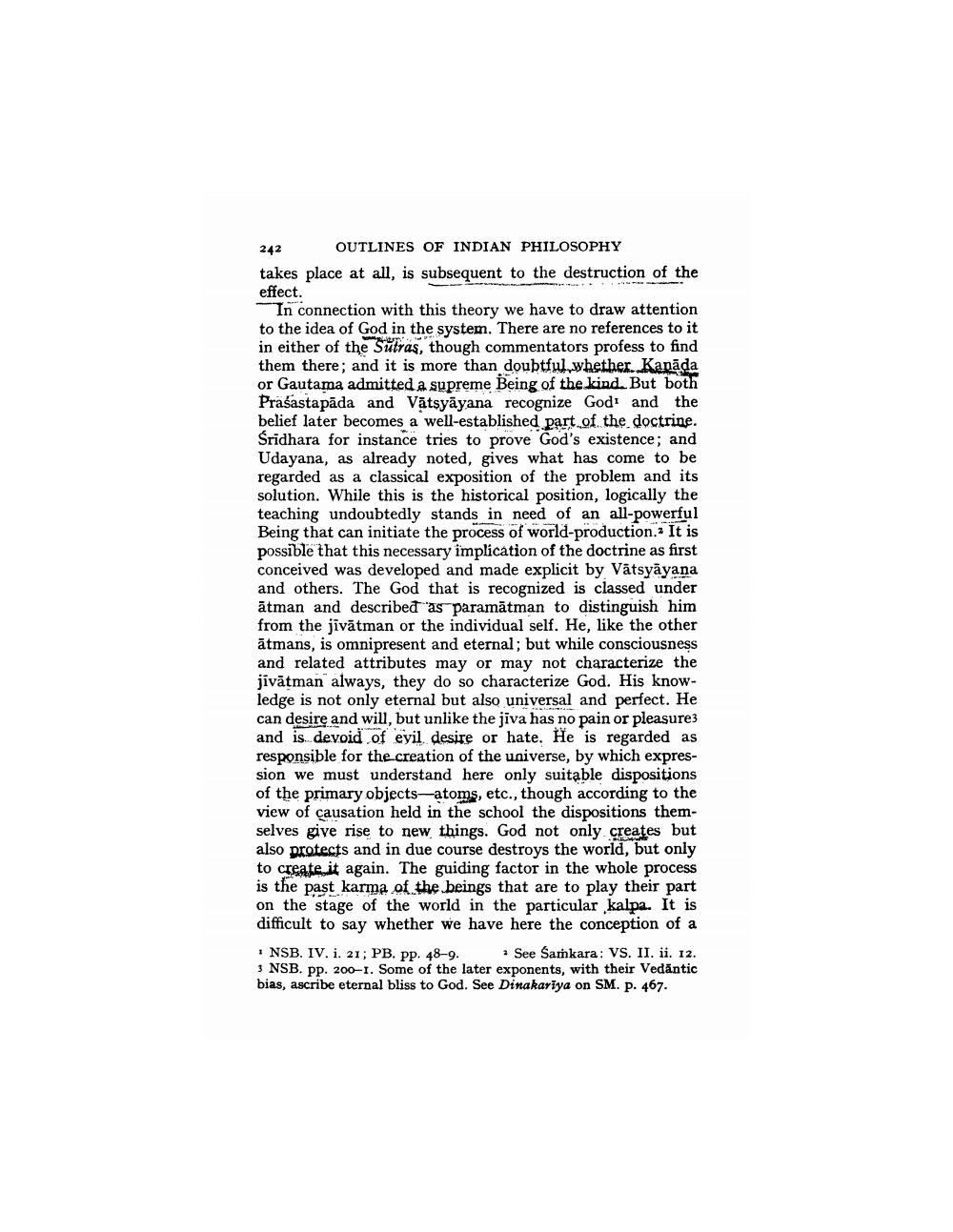________________
242 OUTLINES OF INDIAN PHILOSOPHY takes place at all, is subsequent to the destruction of the effect.
In connection with this theory we have to draw attention to the idea of God in the system. There are no references to it in either of the Sutras, though commentators profess to find them there, and it is more than doubtful whether Kanāda or Gautama admitted a supreme Being of the kind. But both Praśasta pāda and Vātsyāyana recognize God and the belief later becomes a well-established part of the doctrine. Sridhara for instance tries to prove God's existence; and Udayana, as already noted, gives what has come to be regarded as a classical exposition of the problem and its solution. While this is the historical position, logically the teaching undoubtedly stands in need of an all-powerful Being that can initiate the process of world-production. It is possible that this necessary implication of the doctrine as first conceived was developed and made explicit by Vätsyāyana and others. The God that is recognized is classed under ātman and described as paramātman to distinguish him from the jivātman or the individual self. He, like the other ātmans, is omnipresent and eternal; but while consciousness and related attributes may or may not characterize the jivātman always, they do so characterize God. His knowledge is not only eternal but also universal and perfect. He can desire and will, but unlike the jīva has no pain or pleasure3 and is devoid of eyil desire or hate. He is regarded as responsible for the creation of the universe, by which expression we must understand here only suitable dispositions of the primary objects-atoms, etc., though according to the view of causation held in the school the dispositions themselves give rise to new things. God not only creates but also protects and in due course destroys the world, but only to create it again. The guiding factor in the whole process is the past karma of the beings that are to play their part on the stage of the world in the particular kalpa. It is difficult to say whether we have here the conception of a INSB. IV. i. 21; PB. pp. 48-9. See Samkara: VS. II. ii. 12. 3 NSB. Pp. 200-1. Some of the later exponents, with their Vedāntic bias, ascribe eternal bliss to God. See Dinakariya on SM. p. 467.




